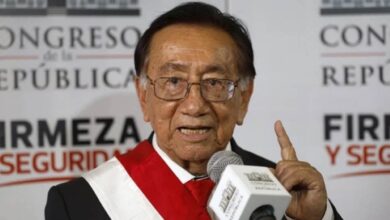Kurdistan takes a step towards independence
Despite the announcement made by the Iraqi high court to suspend the consultation, there is no certainty of postponement by the Kurdish authorities

Leer en Español: El Kurdistán da un paso hacia la independencia
The Kurdish parliament approved the Iraqi Kurdistan independence referendum for September 25th. A total of 65 deputies out of 68 in Parliament voted to hold a referendum that Western powers have tried to postpone believing that unity in Iraq is key to defeating the terrorist group the Islamic State (EI), a struggle in which the Kurds have played an important role. Only Israel claims to support the independence of Kurdistan.
Kurdish President Masud Barzani stressed that the outcome of the referendum will not lead to a declaration of immediate independence but to the start of serious negotiations with Baghdad with the aim of providing a solution to the Kurdish population and their desire for autonomy.
However, the Iraqi Supreme Court, the highest court in the country, ordered the suspension of the independence referendum until it can examine its constitutionality. “We have received several requests and that is why we have decided that the referendum should be suspended in order to study more deeply and give a relevant response”, court spokesman Ayas al-Samuk stated in a news conference. Even so, leaders of the semi-autonomous region have already warned they will not obey orders coming from Baghdad.
Since the Gulf War of 1991, Kurdistan’s northern Iraq has long served as a key support for US operations in the country and since 2014 has been the main US-led war base, against the Islamic State. Turkey and Iran also have vital interests in the area and both exert influence over local politics.
Despite the fact that the Kurdish national cause has gained strong sympathy in the international community, especially due to the success of its Peshmerga troops – the Kurdish security force – in fighting with the Islamic State, no country had expressed itself in favor of secession for fear of weakening the Iraqi government.
Although Iran and the US oppose the referendum, their reasons are different. Washington is concerned that the referendum will weaken the position of Iraqi Prime Minister Haider al-Abadi before the general election of April 2018. Teheran, on the other hand, is concerned that the referendum may create more instability in the region and place Iran’s security in danger by influencing its Kurdish population of 8 million. The secretary of Iran’s Supreme National Security Council, Ali Shamjani, announced that if the Kurdish region proclaimed independence, Iran would close the border with Iraq.
Turkish President Recep Tayyip Erdogan said Turkey had helped Kurdistan and Barzani in the past, but warned that in this case it will not have Turkish support.
Iraqi Kurdistan consists of three provinces, Dohuk, Erbil, and Solimania which are run by the autonomous regional government and protected by their own security services. Iraqi Kurds have long sought separation from said nation, arguing that they have a right to self-determination and that they have their own ethnic identity.
Latin American Post | Carlos Eduardo Gómez Avella
Copy edited by Susana Cicchetto





